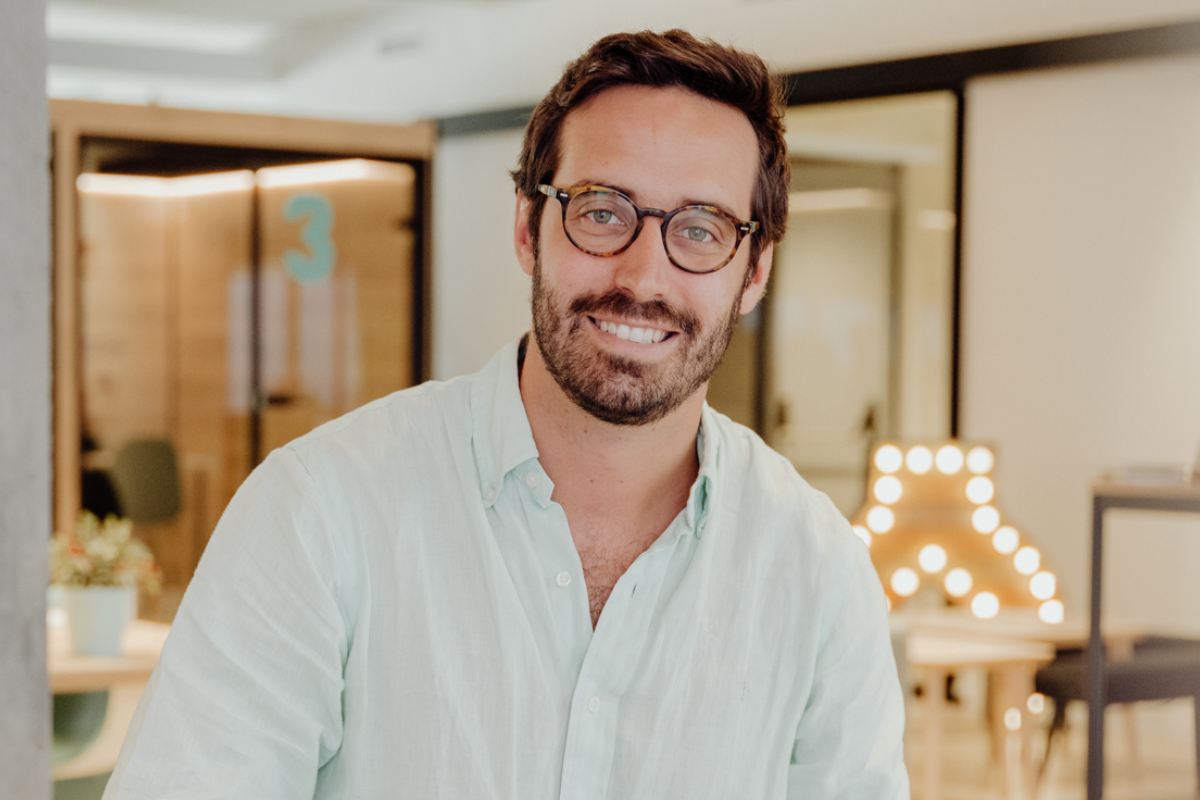Apartool, home from home for business travelers

Marc Vilar, CEO y co-fundador de Apartool
What is Apartool?
Apartool is a platform that manages accommodation for companies whose employees need to stay away for a period ranging from month to one year.
As the first platform to be fully integrated within the business travel value chain, it incorporates all the agencies dealing with travel, relocations, and travel expenses, and any other players needed for effective travel management.
We are a one-stop-shop for large businesses; our platform handles booking, confirmation, billing, payments, and all aspects of management.
When was the company founded and when did you start working there?
Albert Cerezo, Pol Carreras, and I launched Apartool in 2015. In fact, Apartool started off as my business degree final degree project at ESADE. The three of us were eager and passionate to make it a reality, so after working in the marketing department at Danone for some time, we took the plunge, quit our jobs, and created Apartool.
What do you like most about your work?
What I am most passionate about is supporting all four stakeholders: stakeholders:
- Team. What really motivates me is ensuring that the Apartool team, or as we call ourselves, Apartoolers, enjoy their work and thrive, both personally and professionally. We all love learning, sharing knowledge, and continuously improving in all areas.
- Customers. The market for corporate housing is incredibly inefficient, and our company's goal is to revolutionize it by simplifying, digitizing, and integrating the management of temporary accommodation for large company’s teams. We want to "hotelize" the industry and eliminate unnecessary complications.
- Suppliers. Our platform enables small property managers who manage more than 5 apartments to increase their profits significantly by allowing them to access customers that they would never reach on their own. This is because our platform simplifies and streamlines the booking process, making it easier for clients to find and book temporary accommodation
- Investors. By creating value for the first three stakeholders, we not only generate economic value but also enable the individuals and institutions that have invested in our project to benefit too.
And what do you like least?
Red tape. Managing a large company—Apartool is now a large company—involves a large number of processes that are important and necessary, but do not have a direct impact on value creation. Frankly, I don’t like this side of the job as it bores me.
What do you think your company excels at?
Sin dudarlo, en las personas. Siempre insistimos en que un negocio B2B al fin y al cabo es un negocio P2P (People to People): nos apasiona relacionarnos con nuestros clientes y proveedores, dándole más fuerza a nuestra relación personal y demostrando que la profesional es solo una consecuencia de ello. Sin esperar nada a cambio, esto tiene un impacto directo en el negocio: obtenemos mayor disponibilidad, mejor trato por lo que mayor rentabilidad de nuestros proveedores, y logramos ofrecer un servicio y propuesta de valor única a todos nuestros clientes.
What is your main challenge?
As CEO, I focus on four key areas: (1) creating, nurturing, and retaining a strong leadership team, (2) communicating our mission, vision, and values to every member of the team, (3) providing them with more than just financial support, and (4) building and maintaining relationships with investors, customers, and institutions.
My main challenge is to manage the team, with all that that implies, which is why I do my best to find individuals who are better than me in each area.
Where is your business located? Do you know why this location was chosen?
Our head office is in Barcelona, and while we operate in four different markets, 90% of our team are also based here. We rent a small corporate building near Plaza Tetuan, which makes it easier for team members to work together and be creative.
There are two reasons for this choice: one is instinctive, and one is strategic. As proud "Barcelonians," we felt that the city would be the perfect home for Apartool.
And from a strategic perspective, Barcelona is a city that boasts a wealth of talent, excellent infrastructure, and good transport links, as well as an attractive startup and investment ecosystem. This makes it much easier to attract international professionals to our “born global” startup.
What do you like most about the neighborhood where you work?
The fact that it really is a 'neighborhood': we are surrounded by supermarkets, bars and restaurants, families, schools, businesses and everything one needs to feel at home on leaving the office.
How important is Barcelona for your company?
It means a great deal. After all, a company is your team, and our Barcelona location helps us to recruit, develop, and retain our team. So our location is a key element of our business success.
Furthermore Barcelona represents an important part of our business, almost 30%. We work together with a lot of local businesses, and this results in better solutions for our customers.
With which city would you compare Barcelona to?
I believe that Barcelona is incomparable. But put on the spot, I would say that the feel of Lisbon, its streets, center, sea, restaurants, people, and the startup ecosystem all make me feel at home.
What model of city do you think Barcelona should be like?
Barcelona is recognized worldwide for its rich history, culture, architecture, and vibrant urban life. And Barcelona has long been an innovation and startup hub with a particular focus on technology, design and tourism.
I believe that Barcelona should preserve and promote its cultural and historical heritage, but also adopt advanced technologies and sustainable practices. This means building an inclusive city that offers opportunities to all sectors of society, including startups and local businesses.
If I had to compare this urban model with any other city in the world, I would probably choose Copenhagen. Like Barcelona, it is has a rich history and culture that is also known for innovation, sustainability and the its inhabitants’ quality of life.
What best practices from other cities would you like Barcelona to adopt??
There are several good practices from other cities that I believe Barcelona could adopt to further improve its city model. Some of them are:
Copenhagen and Amsterdam’s sustainable urban planning, which would mean providing the infrastructure and gentle guidance to encourage the use of bicycles and other sustainable means of transport, reduce the use of cars, and increase energy efficiency in buildings.
Singapore’s innovation and technology, which have been adopted in all areas of urban life, from waste management to urban mobility.
And Berlin’s economic diversification, which has been achieved by promoting emerging industries in order to create a highly diverse business ecosystem and a world-class startup ecosystem.
What would you ask of the Barcelona of the future?
I would like it to remain vibrant, sustainable, and culturally rich; to continue to encourage innovation and technology to improve the quality of life of all Barcelonians; and to pursue environmental and economic sustainability. In addition, I hope that Barcelona will continue to foster diversity and inclusion, and that it remain a premier tourist destination for visitors from all over the world. In short, I hope that Barcelona will continue to be an open, welcoming, and prosperous city.
If you want to know the latest English news about Barcelona and the people who bring it to life, sign up to our Blog.







